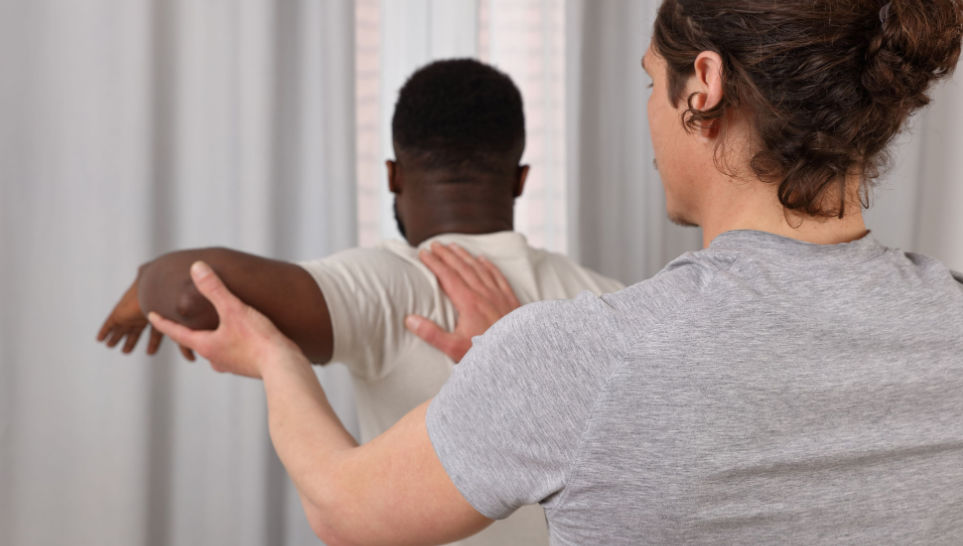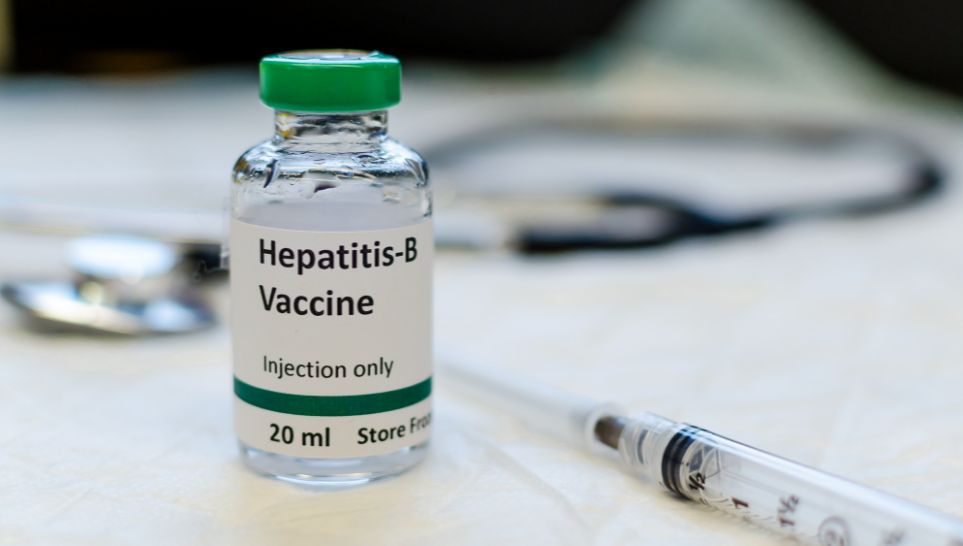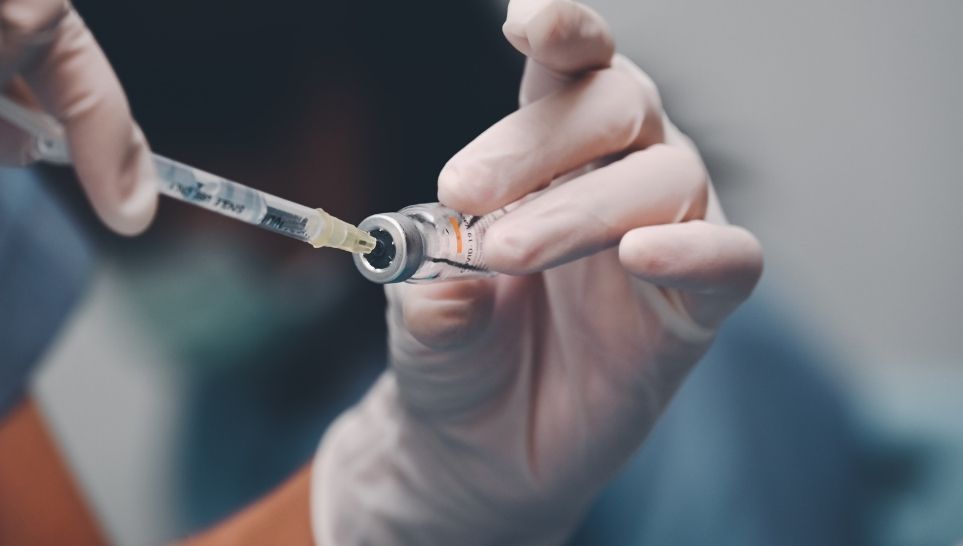
Vaccines are a crucial innovation in the world of medicine, responsible for helping people build immunities and preventing deadly diseases. Unfortunately, medical professionals can make injection errors that could lead to SIRVA, or shoulder injury related to vaccine administration.
SIRVA generally causes sharp pain in the shoulder; however, it can also lead to various other debilitating symptoms. Although rare, SIRVA injuries do occur, and patients should know how to identify them and what to do following a SIRVA diagnosis.
How Is SIRVA Diagnosed?
Medical professionals must inject a vaccine into the proper spot when administering shots. For example, most patients receive shots in the deltoid muscle. This triangular muscle sits between your collarbone and upper arm.
If a medical professional misses this muscle and administers the shot to the joint instead, the patient can suffer intense pain, occasionally resulting in SIRVA.
Essentially, the needle’s penetration in the wrong area causes trauma to that part of the body, leading to inflammation and pain. SIRVA can affect your arm’s ligaments, bursae, or tendons, depending on where the administration occurred.
When diagnosing SIRVA, a physician will ask about your symptoms and perform a physical. This exam intends to narrow down the issue by ruling out infection and arthritis, medical conditions that exhibit similar symptoms as SIRVA.
In addition to a physical exam and symptoms evaluation, your doctor may recommend an ultrasound or MRI. Imaging tests will give them a clearer picture of what the inside of your arm looks like, narrowing down potential problems.
Generally, you may receive a SIRVA diagnosis if any of the following apply:
- You didn’t experience arm pain or discomfort until after receiving the vaccine.
- You noticed symptoms within a certain number of days following vaccine administration.
- You only experience symptoms in the shot area.
Additionally, if none of the other tests point to other potential health conditions, your doctor will likely diagnose you with SIRVA.
Injuries You Can Sustain from SIRVA

Since people often react differently to drugs and injections, SIRVA injuries will vary with each situation. However, below are the most common injuries you could sustain from SIRVA.
Shoulder Impingement
Shoulder impingement is a severe shoulder injury that causes pain and impacts your range of motion. It occurs when the space between the rotator cuff and the bone at the top of the shoulder narrows.
Bursitis
Bursae are tiny sacs filled with fluid that cushion your muscles, tendons, and bones. Inflamed or injured bursae around your shoulder joint can lead to bursitis.
Bursitis often causes stiffness, limited range of motion, and shoulder pain.
Injured Rotator Cuff
Your rotator cuff is crucial for your arm’s range of motion. It consists of a group of tendons and muscles around your shoulder joint. These tendons and muscles keep your upper arm in the shoulder socket.
SIRVA can injure the rotator cuff, resulting in a reduced range of motion, inflammation, and severe pain or discomfort.
Adhesive Capsulitis (Frozen Shoulder)
Adhesive capsulitis, or frozen shoulder, causes significant stiffness in the arm, preventing mobility and dramatically reducing your arm’s range of motion. In severe cases, patients suffering from frozen shoulders can experience symptoms for years. They may also need corrective surgery to regain mobility and alleviate pain.
Tendinitis
Tendinitis is another injury that can occur in the rotator cuff following an improper injection administration. Tendinitis impacts the tendons in the rotator cuff, often causing swelling, pain, and tenderness. Fortunately, tendinitis is less severe than other potential SIRVA injuries.
Is It Possible To Have SIRVA without Symptoms?

SIRVA is rare. However, researchers claim that several SIRVA cases go unreported, indicating that it is possible to have SIRVA without the symptoms.
Additionally, some SIRVA symptoms are less severe than those of other conditions, such as tendinitis. It is normal to feel mild soreness and stiffness following a vaccine injection, but this generally subsides after a few days or a week. Patients may believe that the pain and tenderness they experience are mere side effects of the injection.
SIRVA symptoms typically arise within 48 hours of the shot. If you notice a significantly limited range of motion or debilitating pain in your arm, contact your doctor to schedule an appointment.
What Vaccines Could Be Related to SIRVA?
Since SIRVA results from improper injection administration, any vaccine administered through a needle and syringe could cause SIRVA. However, the most common vaccines associated with SIRVA diagnosis are:
- Hepatitis B
- Hepatitis A
- Influenza (flu shot)
- Varicella/Chickenpox (VAR)
- Human papillomavirus (HPV)
- Meningococcal (MCV4, MPSV4)
If you recently received any of these vaccines and experienced severe pain, reduced range of motion, or other symptoms within 48 hours of administration, contact your physician as soon as possible to discuss a treatment plan.
Treatments for SIRVA Diagnoses

SIRVA can cause severe pain and discomfort while preventing you from achieving a full range of motion, impacting your everyday life. In addition, SIRVA symptoms can be ongoing, lasting for years in some cases.
Fortunately, doctors can utilize various treatment options to address SIRVA symptoms and set you on the road to recovery. SIRVA treatments often include the following.
Rest
Although this technically is not a treatment, it is an essential part of the recovery process. Proper rest allows your body to heal without needing to manage additional stress. In some cases, adequate rest is enough to reduce inflammation and allow your tendons, muscles, and ligaments to recover.
Pain Medications
SIRVA causes inflammation and pain in the affected area. Certain pain medications, such as ibuprofen and acetaminophen, can help alleviate pain and discomfort. While you can easily get ibuprofen and acetaminophen at your local pharmacy, your doctor may prescribe stronger medications if they deem it necessary for your situation.
Steroids
If rest and pain medications don’t seem to help your SIRVA symptoms, your physician may recommend steroids. Steroid medication reduces inflammation and can significantly aid your recovery. Before prescribing oral steroids or steroid injections, your doctor will perform a thorough physical examination to ensure you can benefit from the prescription.
Physical Therapy
Physical therapy is highly effective at helping people improve their physical wellness. Since SIRVA often results in a decreased range of motion, patients may benefit from physical therapy sessions. During these sessions, the physical therapist will work with you to improve your arm’s range of motion, strengthen your muscles, and speed up your recovery.
Surgery
Doctors may suggest surgery for severe SIRVA injuries. Although more invasive than the other treatment options, surgery can help alleviate SIRVA injuries and restore your shoulder and range of motion. Generally, your physician will only recommend surgery if the injury is debilitating enough and none of the other treatments prove effective.
Can SIRVA Completely Go Away?

If you suffer from SIRVA and do not seek medical treatment, the chances of the symptoms going away on their own are slim. It is crucial to seek medical help as soon as you notice symptoms.
Although many treatment options can potentially help alleviate symptoms of SIRVA, everyone’s cases are different. There is currently little research on the effectiveness of SIRVA treatments. While some people experience much-needed symptom relief, others experience long-term symptoms.
For example, patients who suffer severe SIRVA injuries may continue to experience some pain and reduced range of motion even after receiving treatment.
The best way to determine how long your symptoms may linger and how to find relief is by communicating with your doctor and heeding their advice.
How To Reduce the Risk of Getting SIRVA
A SIRVA diagnosis can be a frustrating and overwhelming process for many. Although you can’t always predict when a medical professional will improperly administer a shot, there are a few ways to protect yourself and prevent SIRVA.
One of the best things you can do is ensure that the person administering the shot is a trained medical professional. Nurses, doctors, physician assistants, and other healthcare professionals undergo years of extensive training to administer medicine and injections properly. When receiving a vaccination, ensure the medical professional has a clear view of your shoulder with as few obstructions as possible.
For example, if you plan on receiving a shot that day, wear a shirt that can easily go over your shoulder. It’s easier for both you and the medical professional to wear a sleeveless shirt if possible. Otherwise, you can also take off the shirt or slip out your arm to give the medical professional better access to your shoulder.
Can You Receive Compensation for Getting SIRVA?

The National Vaccine Injury Compensation Program, or VICP, is a government-run program that allows patients to seek compensation if they suffer an injury resulting from a vaccination. If you receive a SIRVA diagnosis following a vaccination administration, you could file for compensation.
The VICP divides compensation for vaccine injuries into three categories:
- Medical expenses paid out of pocket
- Loss of wages or earning capacity
- Pain and suffering
The compensation you can file for depends on your circumstances. Hiring a vaccine injury attorney can help you navigate the compensation filing process and create a case.
How To Find the Right Attorney To Represent Your SIRVA Case
As previously mentioned, patients who suffer adverse effects from vaccination may be able to apply for compensation from the National Vaccine Injury Compensation Program.
Along with shoulder injuries related to vaccine administration, you may be able to apply for compensation if you experience any of the following after receiving a vaccine:
- Allergic reaction
- Bowel problems
- Encephalitis or encephalopathy
- Idiopathic thrombocytopenic purpura (ITP)
- Nerve damage due to vaccine injury
- Vasovagal syncope
- Brain conditions
- Autoimmune disorders
- Anaphylactic shock
- Other vaccine-related injuries
If you suffer from any of the above conditions or SIRVA following a vaccine, you must fill out the proper forms and submit the paperwork in a timely manner. Unfortunately, gathering the necessary paperwork and navigating the compensation process can be overwhelming, especially when you are already dealing with a vaccine injury. That’s why it is crucial to find an attorney with experience in vaccine injury cases.
Fortunately, Sadaka Law has a team of attorneys ready to help.
We understand how frustrating this situation can be. We work hard to help our clients focus on recovery by taking over the legal aspects of their cases. We can help you gather the necessary documents, submit them to the proper places on time, and fight for your compensation.
If you suffer from adverse side effects and injury following a SIRVA diagnosis, contact our vaccine injury lawyers. Call our legal team at 1-800-810-3457 to schedule an initial consultation and discuss your case today.





